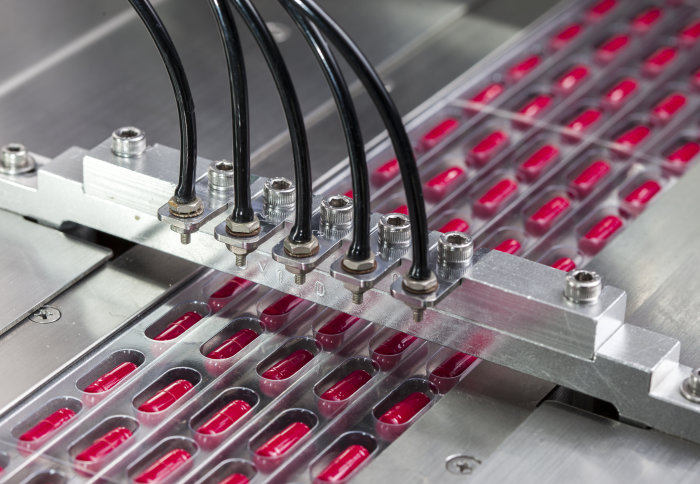£5m Imperial-led lab will pioneer new approach to medicines manufacturing

A new collaboration between Imperial, UCL, and global pharmaceutical company Eli Lilly and Company will seek to transform medicines manufacturing.
Lilly has committed £5 million to fund research into the more efficient manufacture of medicines - which could ultimately result in better and cheaper treatments for patients.
The money will be used to fund a virtual lab, led by Imperial, to apply Process Systems Engineering (PSE) methods to the pharmaceutical industry. PSE uses computer assisted methods and models to design, control and optimise processes. The approach has previously been used in the petrochemical, chemicals, and consumer goods industries.
The Pharmaceutical Systems Engineering Lab (PharmaSEL) will fall under the remit of Imperial and UCL’s Centre for Process Systems Engineering (CPSE) and will see academics from Imperial and UCL undertake research to improve the efficiency of medicines manufacturing.
New methods
Applying PSE methods to the pharmaceutical industry has the potential to increase efficiency, decrease wastage and resolve quality control issues across the manufacturing process. PharmaSEL will seek to catalyse the creation of such methods and will accelerate their adoption in the industry.
This collaboration is an exciting opportunity to translate fundamental research breakthroughs into methods that can be used time and time again by the pharmaceutical industry Professor Claire Adjiman Director of CPSE
Over an initial period of six years, researchers will focus on three main themes: building more predictive models; designing more effective experiments; and improving the design of pharmaceutical manufacturing systems.
The first phase of the work will focus on developing virtual models that better anticipate the outcomes of physical experiments. By improving foresight in the modelling of basic pharmaceutical compounds, researchers will be able to reduce the time to market, as well as the quality and effectiveness of drugs.
Providing solutions
Professor Nick Jennings, Vice-Provost (Research and Enterprise) at Imperial, said: “Technology transfer is central to Imperial’s research strategy. It enhances the impact of the work carried out on our campuses and enables us to provide solutions to key global challenges.

“PharmaSEL is an example of how research can reach beyond the boundaries of academia and offer key advantages to business and the wider public. This has been achieved through the College’s strength in multi-disciplinary collaboration and the fostering of long-term relationships with our partners.”
Dr. Salvador García Muñoz, Senior Engineer Advisor, Small Molecule Design and Development at Lilly commented: “We are excited to collaborate with leading UK institutions on enabling innovation in medicines manufacturing. Building on Lilly’s extensive heritage of partnerships across industry and academia, we are committed to collaborations that ultimately support better delivery of medicines to patients.”
Multidisciplinary collaboration
The Centre for Process Systems Engineering (CPSE) was founded in 1989 by Imperial and UCL. It is a multi-disciplinary research centre comprised of academics from departments across both institutions, including chemical engineering, computer science and operations research.

The new lab’s work will build on a project funded by Lilly in 2015 and led by Professor Claire Adjiman, Director of CPSE and Imperial’s Institute for Molecular Sciences and Engineering (IMSE).
This early research used computer-aided design to prove that the ability to predict solubility of molecules is directly relevant to successful drug development, setting the groundwork for future investigations.
Professor Adjiman said: “The application of research to practice is core to CPSE’s ethos. This collaboration is an exciting opportunity to translate fundamental research breakthroughs into methods that can be used time and time again by the pharmaceutical industry to develop improved medicines and manufacturing processes.”
Professor Eva Sorensen, Deputy Head of UCL’s Department of Chemical Engineering, said: “This collaboration builds on our existing relationship with Lilly and will allow us to further explore the boundaries of our fundamental knowledge of pharmaceutical processes and how to design and operate these, and will allow us to continue to translate our research into practical applications to help solve global challenges within health and wellbeing.”
Article text (excluding photos or graphics) © Imperial College London.
Photos and graphics subject to third party copyright used with permission or © Imperial College London.
Reporter
Deborah Evanson
Communications Division
Naomi Black
Enterprise